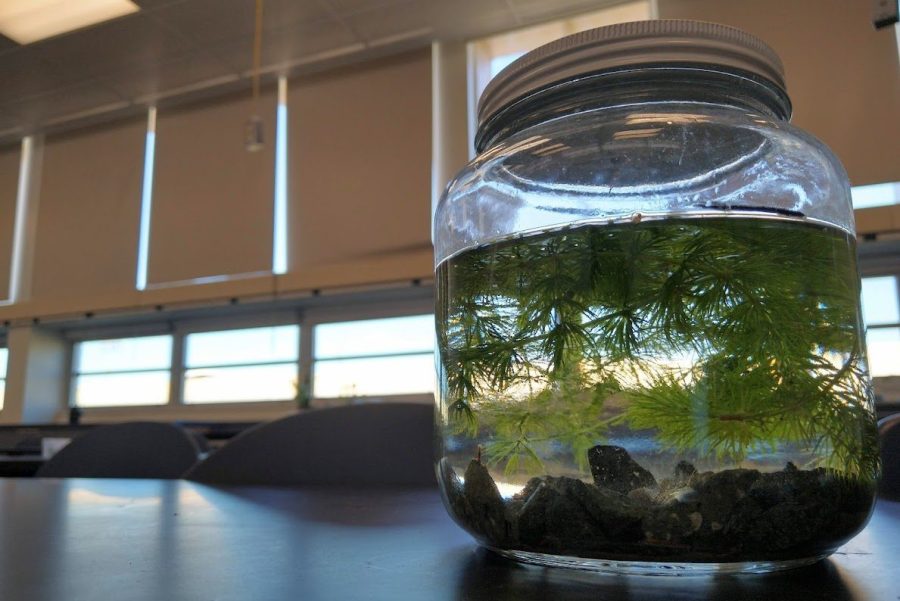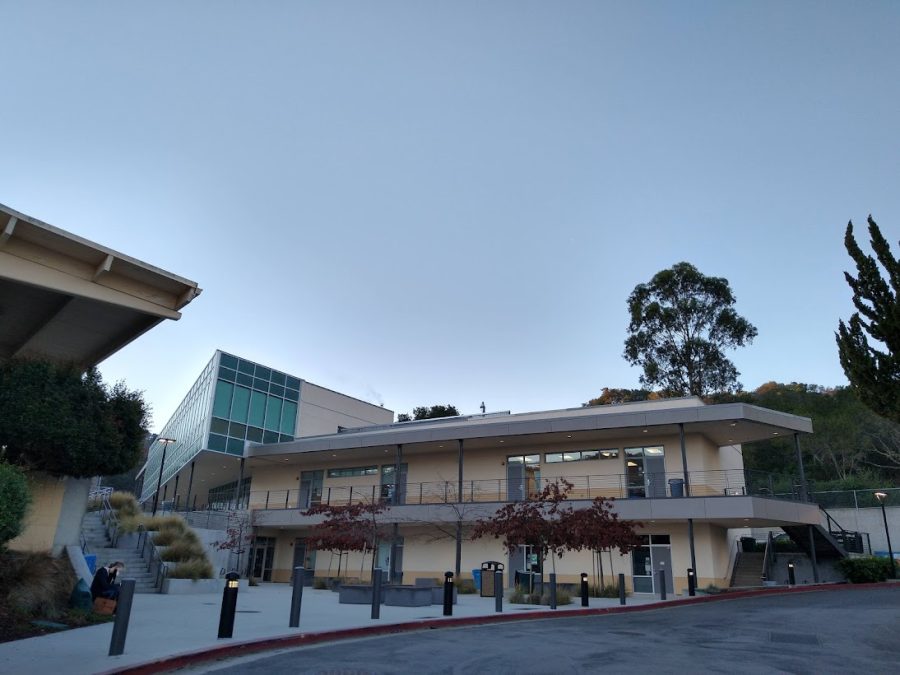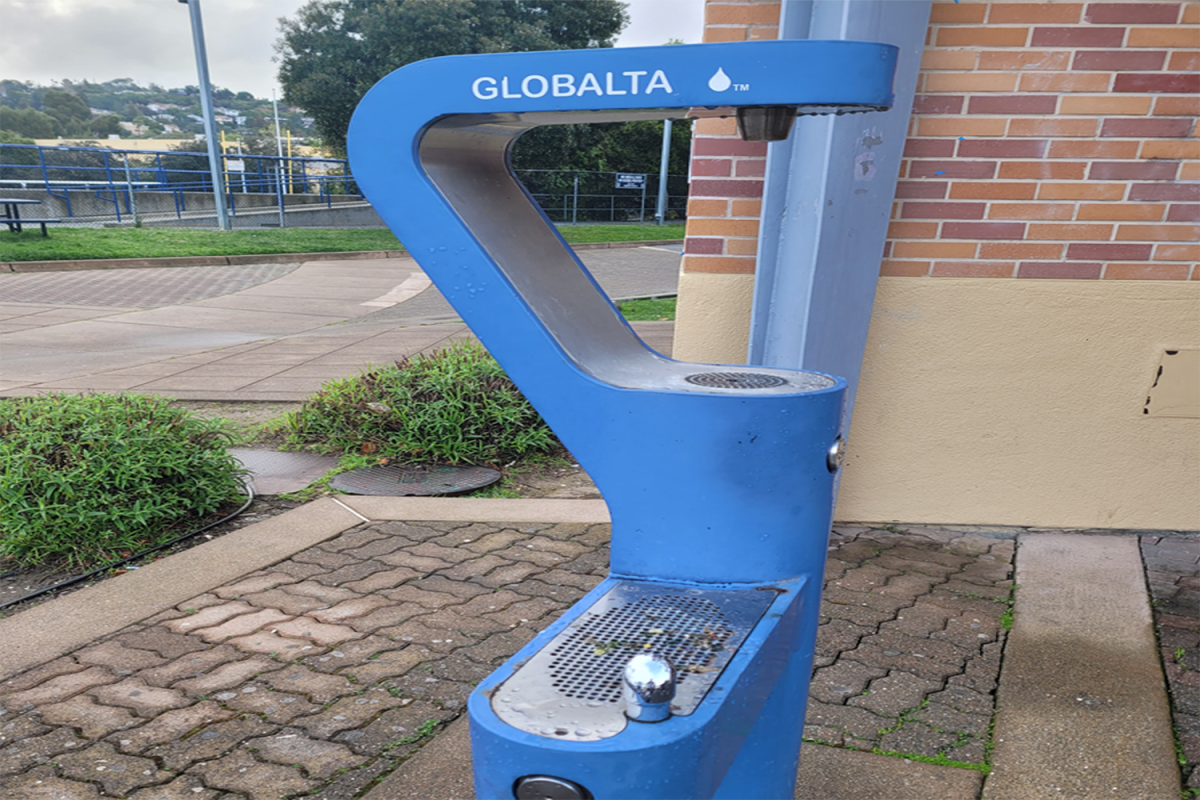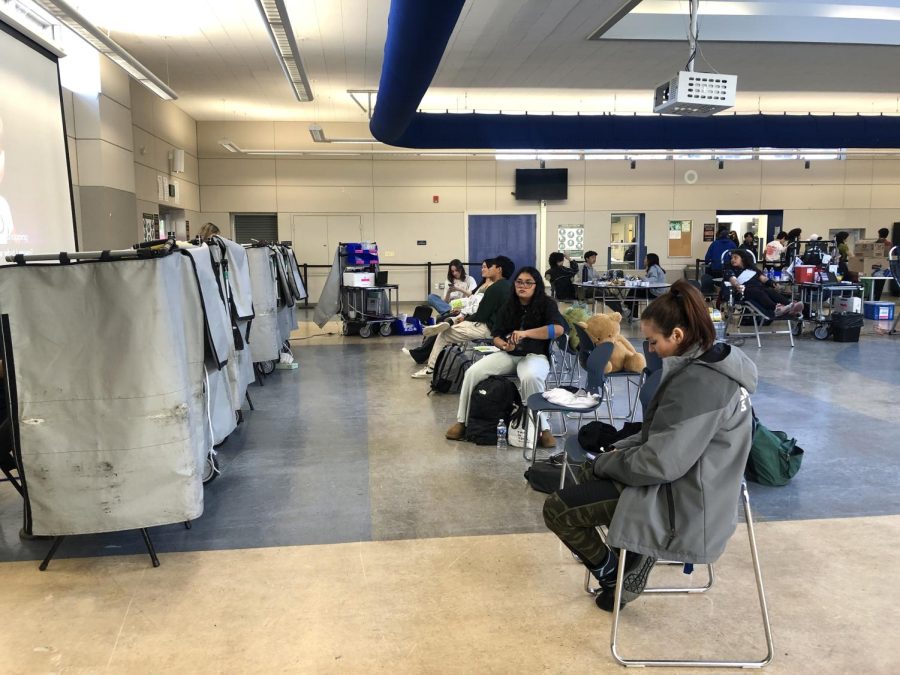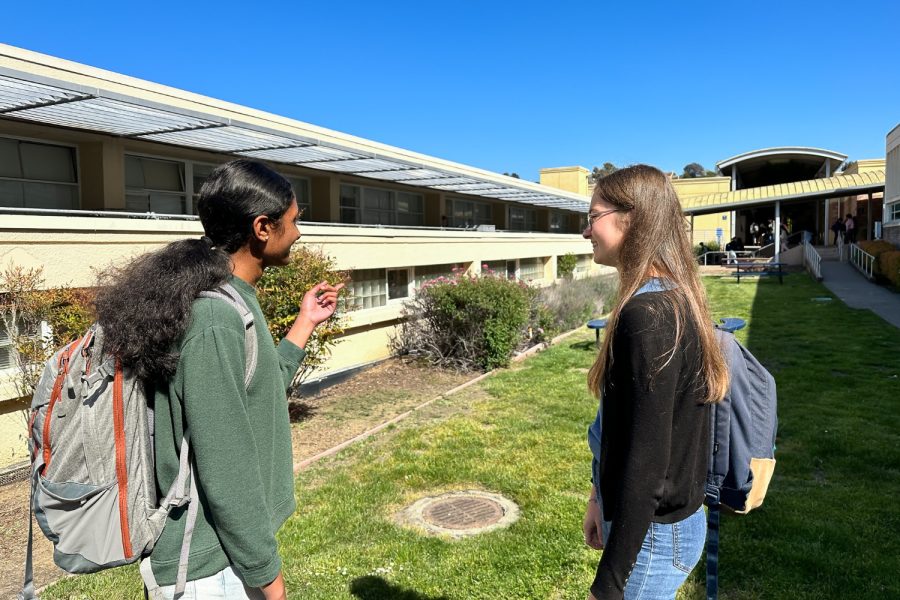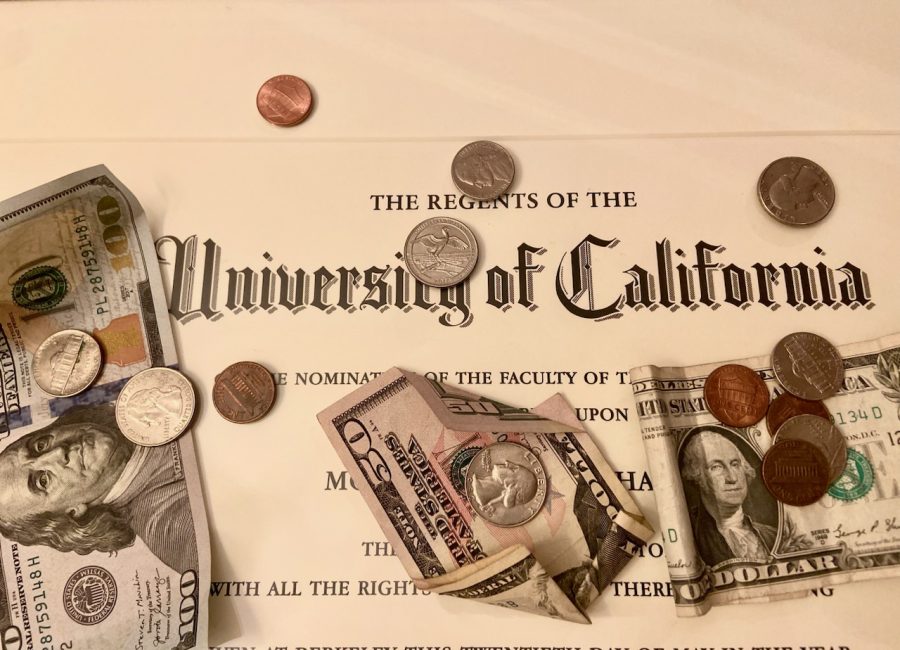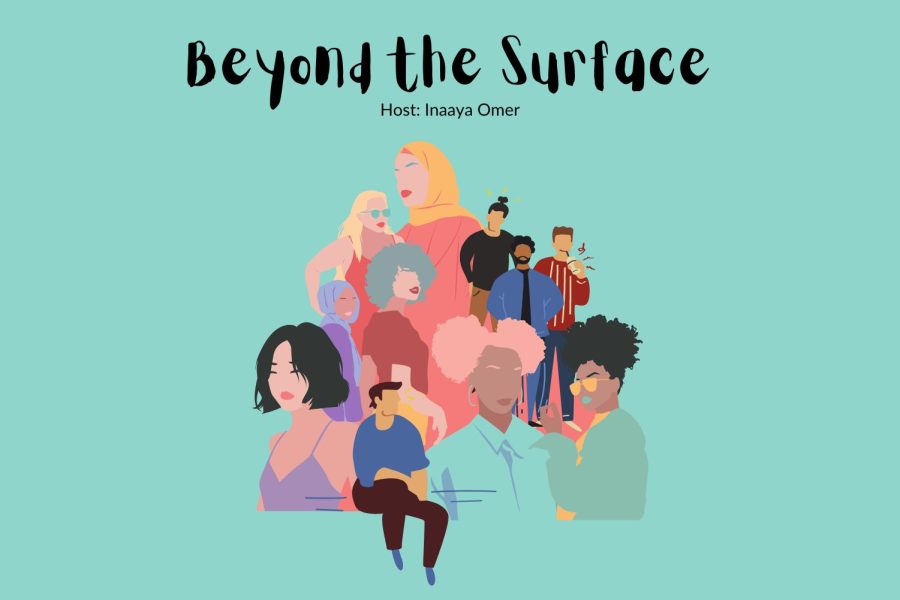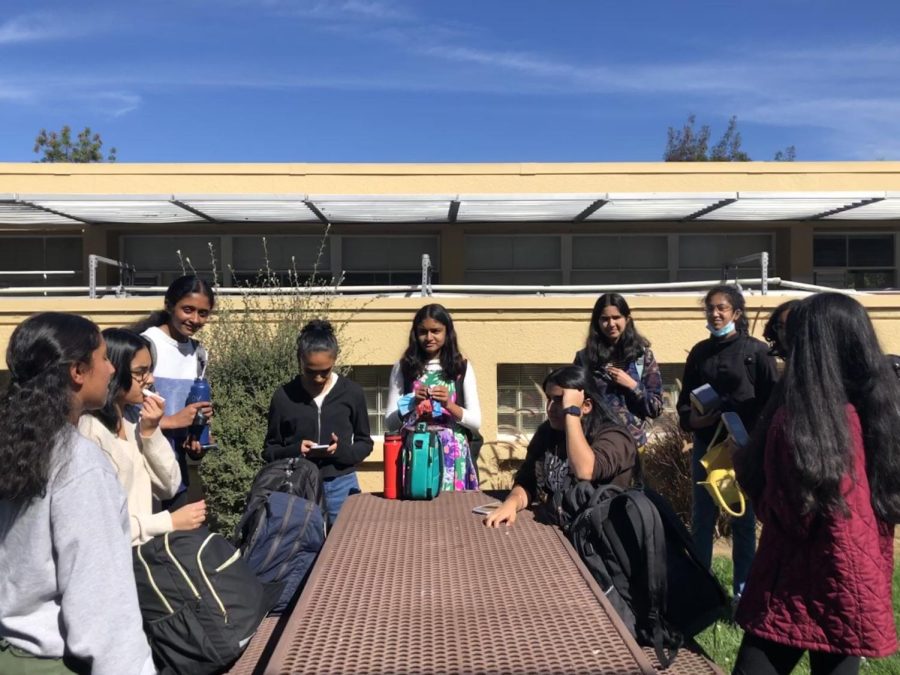Science requirements for graduation from Carlmont have changed, as Integrated Science is being removed. The state-mandated graduation course requirements for science are two years of biology and physical science.
“The new requirements are the same requirements. However, the district saw that we were out of compliance because we got rid of a class called Integrated Science, which was a physical science for freshmen who wanted to take it,” said Paul Bellar, biology and human biology teacher.
However, since Integrated Science is no longer available, students are now required to take either a life science, like human biology or biology – which all freshmen are required to take, and physical science, like physics and chemistry. California State University (USC) and University of California (UC) requirements, however, need two lab sciences.
Carlmont offers biology, physics, chemistry, Biotechnology I-II, human biology, AP Physics, engineering & green technology, AP Chemistry, AP Environmental Science, AP Biology, Biotechnology three-four, and BTI Bio-manufacturing.
Popular and common sciences include physics, chemistry, human biology, and Biotechnology. All AP classes have prerequisite classes, such as AP Physics, which requires physics and a concurrent calculus class.
Physics:
Physics requires the prerequisite of biology, algebra I, and geometry.
“Physics is a challenging but rewarding course for most students,” said Ian Hagmann, an AP Physics teacher. “The main challenge for many comes from the amount of mathematical and computational situations we study. Physics is inherently a quantitative science and as such, we use algebra in nearly every class. The algebra level required, however, is definitely within the grasp of the vast majority of students’ abilities. We do simpler algebra than you would do in a typical algebra class. The challenge in physics is not the math itself, but rather how to use the relationships correctly.”
Hagmann has also taught chemistry, and according to him, physics and chemistry differ along the lines of the use of math.
“The primary difference between the two classes would be that physics is more mathematically challenging but conceptually easier to understand, while chemistry is relatively straightforward with math but the concepts are much more abstract,” Hagmann said.
Carlmont physic classes teach about how the universe works, how objects interact, motion, forces, momentum, energy, electricity, magnetism, and waves.
In physics, students take away a very valuable analytical mindset.
“Physics is important to take if you have any interest in a STEM field. If you study any science or engineering topic, physics will be very helpful even if you might not think so at the start,” Hagmann said. “Additionally, due to the analytical mindset learned from taking physics many companies will hire physics students for jobs that are not science. For example, there are more people working on Wall Street that have physics degrees than have an MBA. This is mainly due to the fact that those with physics degrees are highly analytical and are better at seeing and using patterns. Physics opens many doors and is one of the most versatile classes you can take in high school.”
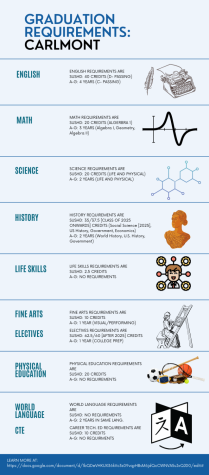
Chemistry:
Chemistry, another popular laboratory and physical science class at Carlmont features the structure of atoms and molecules, chemical bonding, chemical reactions, solutions, periodic tables, chemical substance rules, and more. It requires the prerequisite of algebra I.
“Chemistry is a difficult subject per se because is quite abstract about objects [atoms, molecules, and subatomic particles] which we cannot observe with our own eyes. And they behave quite differently from us or anything else in our familiar environment. Hence, we have a hard time relating and understanding what they do and the laws that govern their behavior,” said Felix Gandara-Guzman, a chemistry and AP Chemistry teacher.
In reality, there is not that much algebra in chemistry. It’s a prerequisite only because without it you cannot solve some simple equations in a few sections.
“The main benefit of taking chemistry is getting ready to understand other fields of science. Chemistry is known as the central science because it is essential in the understanding of biology, environmental science, geology, astronomy, medicine, and forensics to mention a few. So regardless of whether you like chemistry or not, you need it to become successful in many other fields,” Guzman said.
Similar to physics, chemistry is available and recommended for numerous career pathways.
“The career choices you have available in chemistry are numerous. You can go into chemical engineering, medicine, neuroscience, materials science, environmental science, forensics, patent law, polymers, biochemistry, and many more,” Guzman said.
Many juniors and sophomores currently take chemistry, which is open to grades 10-12.
“I think that chemistry is difficult, and in class we are currently learning stoichiometry. People should take this class because it’s fun to do the labs and we’re able to learn a variety of things,” said Delia Paiko, a sophomore in chemistry.
Human Biology:
Human biology, which is not required like biology, features the study of life, its interactions with the world and the making of proteins. It has little difficulty as it requires little math, but it still does not count as a physical science class.
Dissections are an important part of human biology, with about five dissections over the year: chicken, frog, cow eyeball, sheep’s brain, and fetal pig. There are no prerequisites for human biology.
“If you’re more into life, and how it interacts with other organisms, biology is the route. That’s really how you want to how you perceive science in the world; if you have questions you want to answer in your life and have an understanding of life,” Bellar said.
However, students prefer physics and chemistry over human biology due to their status.
“I would not have taken human bio. I’d rather have taken physics or chemistry because human bio just isn’t as valuable for college apps. Colleges don’t like to see human bio as much as physics or chemistry, because physics and chemistry are just more prestigious,” said Tyler Peng, a junior.
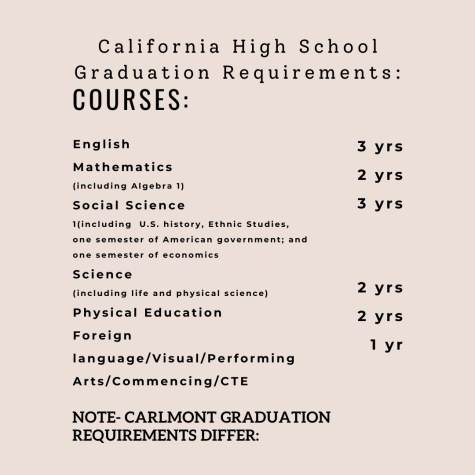
Biotechnology:
Biotechnology I-II and III-IV are CTE classes and do not qualify for science classes by the district. However, UC and USC colleges count Biotechnology classes as lab sciences under the life science category.
Biotechnology, like the other sciences, is open to sophomores, juniors, and seniors.
“I took Biotech because I didn’t want to take any challenging courses actually and I just didn’t know what to take after [biology] since I had to take an advanced math class and I wasn’t really taking an advanced math class. I don’t really mind taking chemistry or physics though. I just don’t know if I’m qualified enough to take those classes,” said Miguel Lucidine, a sophomore.

